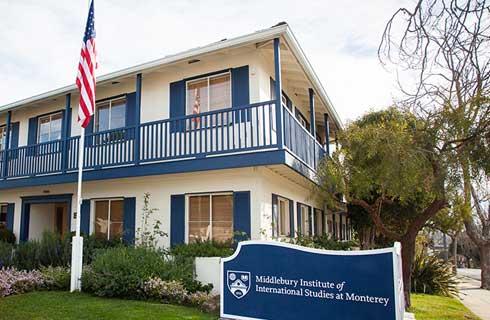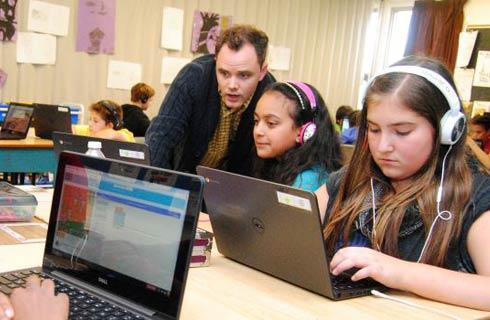癌症科学
MRes Cancer Sciences

学历文凭
Masters Degree (Research)

专业院系

开学时间

课程时长

课程学费

国际学生入学条件
English to IELTS 7.0 (with a minimum of 6.5 in each component).
TOEFL - 95 overall with no less than 22 in any band
IDP—雅思考试联合主办方

雅思考试总分
7.0
了解更多
雅思考试指南
- 雅思总分:7
- 托福网考总分:95
- 托福笔试总分:160
- 其他语言考试:PTE Academic 76 with no less than 67 in all four skills
CRICOS代码:
申请截止日期: 请与IDP顾问联系以获取详细信息。
课程简介
The MRes in Cancer Sciences is a one year, full-time programme comprising three taught modules and an extended laboratory-based research project. This programme is specifically designed to offer postgraduate training to students interested in a career in cancer research, particularly those wishing to pursue a PhD.<br><br>Examining the entire range of cancer research from our fundamental understanding of cancer pathogenesis through to the development of highly targeted novel therapies, the programme is designed to provide life and biomedical science graduates with an in-depth understanding of cancer research through focussed taught modules and an extended laboratory-based research project. We explore how modern cutting-edge techniques and big data analysis have led to our understanding of how cancer is driven at the genetic and epigenetic level, and how the tumour microenvironment impacts cancer development and treatment. We also examine how new successful therapeutic approaches have been used in patients and how they have impacted outcomes. The extended research project makes use of many of these research techniques, providing intensive training in modern laboratory-based cancer research.<br><br>The programme consists of three taught modules including cellular and molecular basis of cancer, genomics and genome-based therapeutics and immunology and immunotherapy. The modules are led by leading experts actively involved in cancer research, clinical trials and patient treatment. The modules cover how genomic analysis is applied to translational research for diagnosis and treatment of cancers and how recent advances in our understanding of cancer immunology have been successfully applied to immunotherapy. The projects are generally laboratory-based and provide skills in designing, performing and communicating cancer research. A large range of research projects are usually available and can be on anything from cancer causes and diagnosis to treatment.<br><br>Students will gain practical skills and scientific communication skills that will benefit anyone wanting a career in academic, clinical or pharmaceutical research. Being able to discuss your research concisely, logically and effectively are skills that are taught throughout the programme.
相关申请
 预科
预科 奖学金
奖学金 实习机会
实习机会 在校学习
在校学习 跨境学习
跨境学习 校园授课-线上开始
校园授课-线上开始 在线/远程学习
在线/远程学习
学校排名

世界排名116
数据源:泰晤士高等教育世界大学排名
关于伯明翰大学

伯明翰大学邀请勇敢、独立的思想家加入英国最大的学生社区之一。这里有来自150个国家/地区的1万多名学生。伯明翰大学是世界顶尖大学之一,其成就包括: QS世界大学排名位列第84名 (英国第14名)。 《金融时报》和《经济学人》商学院世界排名前100 著名的罗素大学集团成员 21世纪大学的创始成员该大学以其开创性的研究闻名于世。学生们从影响当地和国际社会的开创性发现中受益。每个人在伯明翰大学都能找到适合自己的专业。学习选择包括本科学位、研究生授课学位和研究生研究学位。学科领域广泛,涵盖从国际发展和政治到心理健康护理。伯明翰市伯明翰市是一个多元化、充满活力的宜居之地,是英国最大的城市之一,也是欧洲最年轻的城市,25岁以下的人口几乎占城市人口的40%。这座现代化城市的中心地带有历史悠久的文化遗产,还有大量世界一流的购物中心和夜生活区以及众多博物馆、剧院和公园,学生可以去游览参观。伯明翰是一座具有多元文化的城市,拥有成百上千座清真寺、教堂、寺庙和犹太会堂,对各种信仰的人们都秉持热情友好的态度。伯明翰市交通便利,学生只需两个小时就可以到达伦敦或快速去往周边乡村。伯明翰国际机场连接到世界各地的目的地。
本校相关课程
其他相关课程

PhD Sport and Health Sciences - Children's Health and Exercise
 埃克塞特大学
埃克塞特大学泰晤士高等教育世界大学排名:177
学历文凭
Ph.D.
开学日期
课程费用总额


健康科学硕士(整骨疗法)
 维多利亚大学
维多利亚大学学历文凭
Masters Degree (Coursework)
开学日期
课程费用总额


健康科学学士学位(数字健康与信息学)
 斯威本科技大学
斯威本科技大学学历文凭
Bachelor Degree
开学日期
课程费用总额


博士教育与卫生技术
 诺丁汉大学
诺丁汉大学泰晤士高等教育世界大学排名:130
学历文凭
Ph.D.
开学日期
课程费用总额


Bachelor of Exercise and Sports Science/Bachelor of Nutrition Science
 澳大利亚凯斯林大学
澳大利亚凯斯林大学学历文凭
Dual Degree
开学日期
课程费用总额


科学与健康基础证书-埃塞克斯大学国际学院
 Kaplan教育
Kaplan教育学历文凭
Foundation for Undergraduate
开学日期
课程费用总额
































